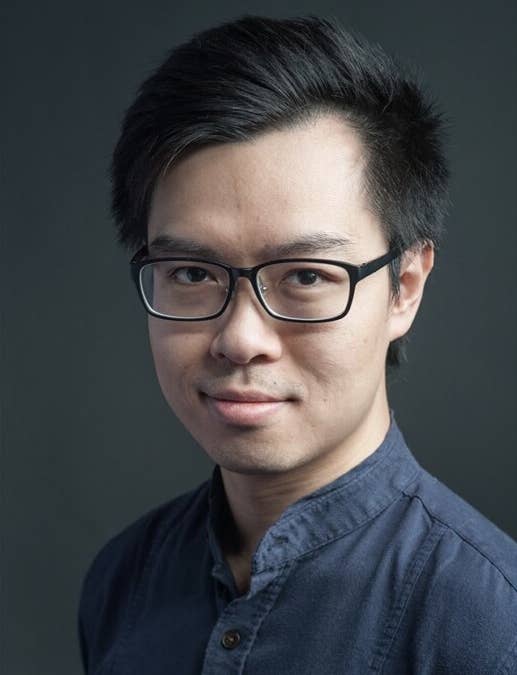Xbox's mission to uplift indies in emerging markets
We talk to the firm's global expansion team about the market across Southeast Asia, and its efforts to help developers succeed internationally
At Gamescom Asia last month, Xbox gave a talk about how it empowers creators across the continent, supporting indies so they can make it to the global stage.
These efforts are led, among others, by Agnes Kim, director of strategic markets at Xbox, and Jun Shen Chia, global expansion lead for Southeast Asia, Taiwan, and Hong Kong, both of whom we met at the show.
As the lead of Xbox's Strategic Markets team, Kim's remit covers China, Korea, Southeast Asia, India, and Africa.
"It's a lot," she smiles. "Our rule is to bring awesome games to our ecosystem, have partnerships, sometimes beyond content, but mainly focused on bringing those games to the platform. And I have team members in the regions, like Jun Shen who leads the Southeast Asia, Hong Kong, Taiwan region.
"So we're all about games [and] partnerships really, we're all about the ecosystem, just wanting to see these regions thrive, and for us to help, support, collaborate. We honestly have the best jobs; we go to shows a lot so that we can meet more developers, see more games, and it really helps to be in the scene, to feel it."
Chia adds: "The short and long of it is that a lot of the developers in this region have global ambitions. And we, as Xbox, are here to help facilitate that and bring their games to a global audience."
We ask him whether developers across Southeast Asia have met difficulties akin to what studios have experienced in the west, with waves of layoffs and closures. It's worth noting that 'Southeast Asia' is not one unified market, but a tapestry of fragmented markets with different tastes, as Gamescom Asia project director Daria La Valle told us earlier this year.
"I don't want to give a blanket, generalised [view] but, for sure, the Southeast Asian markets all are facing a lot of the similar challenges than the rest of the world are facing," says Chia, who is also vice chair of the Singapore Games Association. "But when we speak about the independent developer scene, which is most of the developer groups that I work with, they are certainly finding it challenging to find their footing in a market where a lot of the attention is usually given to larger scale titles. Steam and a lot of the other platforms are just filled with amazing games and so it becomes increasingly hard for them to be able to show up alongside a lot of the other things out there.
"And so the question becomes, how do they find exposure? How do we continue making games in a market that continues to be really, really challenging? And then last but not least, how do they find the people and the talent to help them make those games?"
This echoes what devs told us for a recent article on the state of the indie games industry, with visibility and discoverability mentioned as a huge challenge. But beyond that, Chia says the Southeast Asian region has "unique challenges" when it comes to the obstacles in the way of developers' ambition to reach a wider community.
"It is in a part of the world where there's a lot of economic differences, a lot of unique things in respect to the ways the society and the cultures are set up," he continues. "But one thing is very, very clear is that they all have desires for their games to be seen on the global stage alongside the rest of the world, and it is a crowded and intense games market right now.

"And so our role as Xbox is to figure out how we can help support these games, and give them the discoverability that they're looking for. Sometimes it is funding and the ability to drive sustainable studios so that they can continue making awesome games. And then, last but not least, how can we support the ecosystem, working with associations and communities on the ground, grassroots groups, to facilitate their education and give them resources to level up their skills and talents."
"[Indie developers] are certainly finding it challenging to find their footing in a market where a lot of the attention is usually given to larger scale titles"
Chia says Southeast Asia is a collection of countries at various points in their game development journey, and highlights a few standouts that have particularly mature industries.
"For instance, I was just at the Indonesia Game Developer Exchange (IGDX), a major B2B conference and it was an incredible show, filled with amazing games, that levels from indies to triple-I and single-As," he says.
The Indonesian industry recently celebrated the success of Stairway Games' Coral Island, which was a global hit, with Chia also mentioning standout studios like Coffee Talk developer and A Space for the Unbound publisher Toge Productions.
"Indonesia is an incredible market filled with amazing talent, and they are very globally-minded," he continues. "I would say they're at the forefront of the countries in Southeast Asia as far as being able to have games that are going to have that level of commercial appeal and global scale.
"There are markets like Singapore where you have really incredible institutional knowledge because a lot of the international companies have set up shop here. And so a lot of the developers that come out of those countries go on to start their own studios. So there's a lot of veterans, and they're able to start making the types of quality games that are going to have success globally. But it is being met by challenges [like] high cost of living, constraints on talent as well as a much smaller market size, given Singapore is on a smaller scale. So that's the contrasts and nuances.

"Then you've got the Philippines which is slowly starting to come online. They used to be an outsourcing hub but they're starting to think about original IP. Malaysia is also [similar] to Singapore where it's got international outfits. But the talent pool is starting to come online with the indies.
"So we're seeing a really interesting time in Southeast Asia, where there's so much going on at different levels. And the question is, how can we help all of them at scale, with what they want? And to be fair if you speak to all the associations, they'll tell you the same thing: they just want exposure and they want the ability for the games to stand on the global stage."
Xbox has several ways to provide support to devs in Southeast Asia and in the other emerging markets Kim focuses on – and funding is a core aspect.
"For that, we have the Developer Acceleration Program, [that] we launched two years ago now, and it's been really helpful for a lot of the developers we cover because it focuses on underrepresented communities and Southeast Asia, Africa, India, any developers coming from these regions [qualify for that]," Kim says.
It's also not just funding that the Developer Acceleration Program helps with, with Xbox organising online education programs called Green Room to help with knowledge as well, with different topics rotating so developers can learn more about successfully launching a game.
"The other [funding option] is a very coveted Game Pass funding opportunity, which is a little bit more challenging for indie developers generally, because we have a very limited, tailored, catalogue of games. [It's] limited spots, so it's a little harder to fund as much. But when you do, it is obviously very impactful for the publishers and developers."
There's also obviously the ID@Xbox program, which was founded to support independent developers and "really covers the gamut of everything that an indie would need to get started on Xbox," Chia says.
"We provide technical support, onboarding, technical help [with] dev kids and certification, which is the fundamental step to getting your game on our storefronts, [and] we provide marketing support."
He continues: "And then with respect to global expansion, we're here in the market to really speak thoroughly with associations to understand their needs. So we brought Game Camp Asia, which is essentially our two month-long education curriculum here. We took teams through everything, 101 [about] development, production, audio design, game design, marketing support, pitching your game. We really want to help level up the talent in the ecosystem, we're here speaking to government bodies and institutions."
"Content is key to us being successful, not just on a global stage but also regionally"Agnes Kim
Kim highlights that Game Camp leverages Xbox's first-party studio experts.
"Basically, we're levelling these developers up to think like and build like AAA studios," she adds. "Then when we actually finish the program, we don't say 'You must publish on our platform'. Of course, it would be lovely if they did, but it's really just to give back and raise the ecosystem, all up."
Some markets across Asia have historically not been very strong for Xbox, Japan being one of them. While this isn't a territory Kim and her team specifically focus on, we ask her whether initiatives like the ones she's leading are also a way for Xbox to strengthen its foothold in the region, with emerging talent a potential key for the firm to grow across Asia.
"I would say, content is just generally important," she answers. "Depending on the market of course, but Japanese content for example really works in Japan, and with Japanese players. Same thing with Korean content. They really do get played by Korean players. So, I do think content is key to us being successful, not just on a global stage but also regionally. So I wouldn't necessarily say like 'We must have indie in order to be successful in this market', but it's more that, if we want to be successful in a market, we have to be holistic, it has to be content, it has to be our product, it has to be the right fit. It has to be the right marketing, and if we are missing the content piece, it's just not going to be the whole picture."
Chia chimes in: "The one thing I'll add is that our playerbase is truly global. And they are incredibly interested in playing games from all parts of the world… And we think that the diversity that we can provide through programs like the global expansion efforts is truly going to lead to a global and diverse playerbase, and it's one where everyone will win, both the developers and the players."
GamesIndustry.biz is a media partner for Gamescom Asia, with organisers providing us with travel and accommodation for this year's event.
.jpg?width=720&quality=70&format=jpg&auto=webp)
